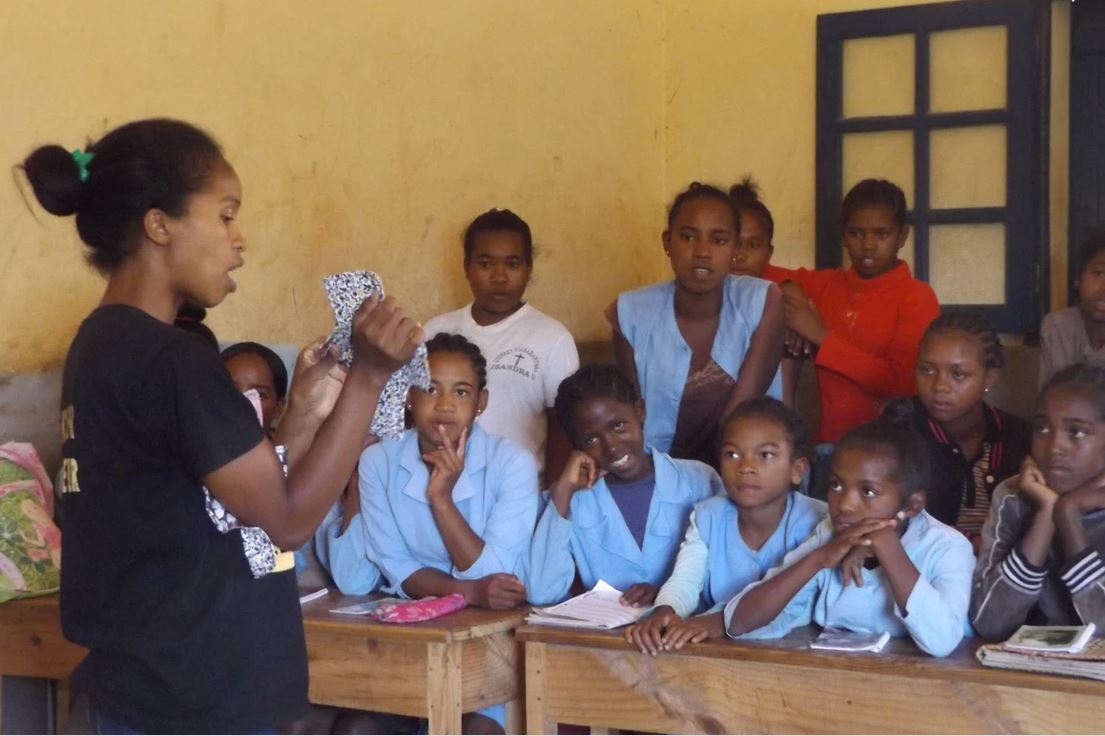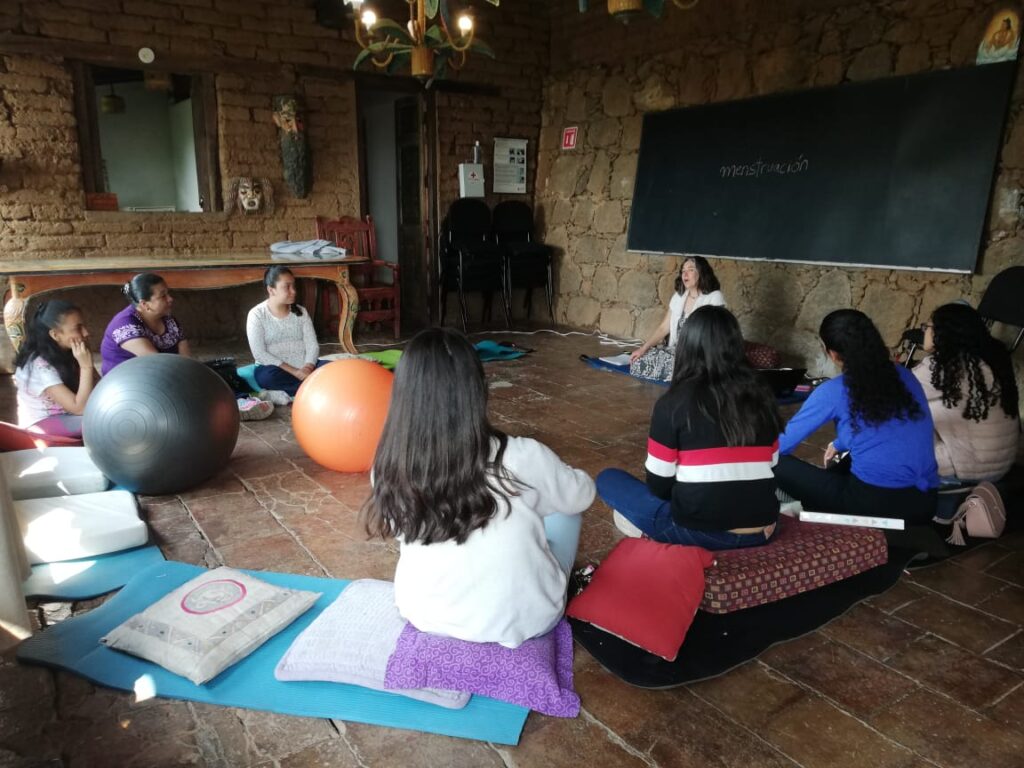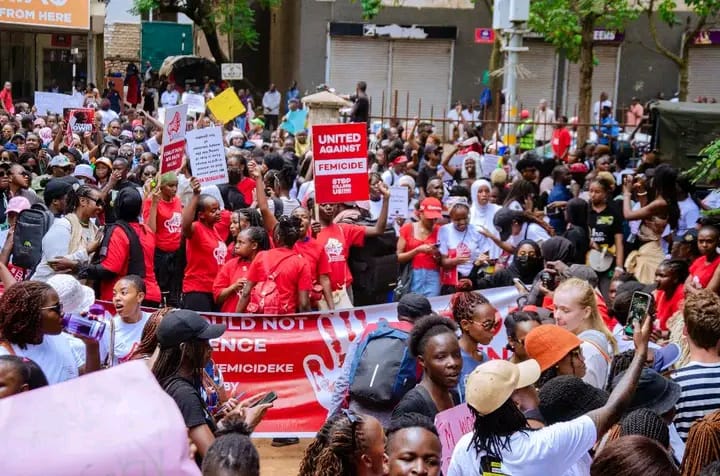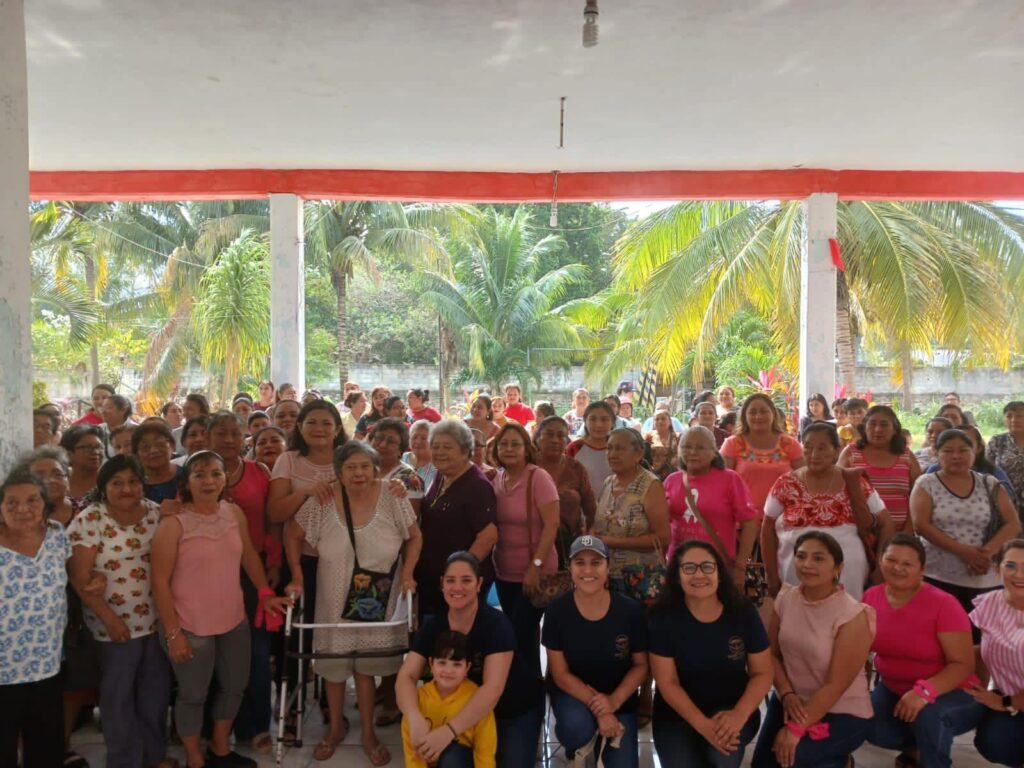‘Menstruation Should Not Be an Obstacle to Living Life’

“I was 14 years old…and to my surprise, my underwear was full of blood…I had no idea what to do. My heart was pounding, my body was shaking. I did not understand what was happening to me.”
That’s how Tahiry, a former youth educator with WomenStrong partner Projet Jeune Leader in Madagascar, remembers her first period.
She was terrified and told her mother, who pulled out some old clothes.
“The two of us cut [the clothes] up, folded them like handkerchiefs, and put them in my underwear,” Tahiry said. And then her mother told her, “Be careful of your behavior – you can get pregnant, because there is this bleeding.”
It wasn’t until years later that Tahiry understood what a period was.
Tahiry’s experience is not unique. Getting a period is a fact of life for all girls. But, sadly, so too is the shame, stigma, and social exclusion that many adolescent girls face when menstruation starts.
In fact, girls in sub-Saharan Africa may miss up to 20 percent of the school year because of menstrual shame or the lack of supplies. In Nepal, menstruating girls are sometimes forbidden from having contact with people and animals. And in the United States, half of all women have said they have experienced period shaming at some point in their lives.
Many girls miss school simply because they can’t afford sanitary pads, tampons, or other products. This so-called “period poverty” could affect up to 1 in 10 women and girls in every region, worldwide.
Today, from the Philippines to Madagascar to Mexico, many of WomenStrong’s partners who work to educate and empower adolescent girls tackle issues related to menstruation, including equipping them with the products they need to ensure that getting a period doesn’t stop girls from attending school.
In Lusaka, Zambia, Copper Rose Zambia has been a pioneering voice in menstrual health education and advocacy, as part of the organization’s work to empower young women and improve their reproductive health.
“Menstruation is considered a taboo where we come from,” said Ruth Litaba, a senior program officer with Copper Rose. “Unless you have a grandma, you don’t get any information about menstrual health.”
Founded six years ago, Copper Rose has now reached over 10,000 women and girls through its menstrual health education campaigns in communities across Zambia. They also train young women to make washable sanitary pads, which can last up to 18 months, to ensure that girls have their own supplies and also as an income-generating activity.
Just like Copper Rose in Zambia, the Girls Empowerment Network (GENET) in Malawi teaches adolescent girls how to make reusable sanitary pads so that the lack of period products won’t be a barrier to their schooling.
GENET’s Menstrual Health Management project is now in 40 schools in the Blantyre, Mulanje, and Mzimba districts, where girls join with school staff and mothers’ groups to learn about menstruation and are given access to the supplies they need.

In Mexico, Mujeres Aliadas works to ensure that women and adolescents in their communities can make healthy and informed decisions about their bodies, sexuality, and reproduction. Their programs include menstrual health workshops for adolescent girls and boys, designed to help young people understand getting a period as a healthy, natural part of growing up.
Lisel Lifshitz, the executive director of Mujeres Aliadas, is a global champion for the Period Positive campaign, which seeks to promote shame-free talk about menstruation and to break the cycle of secrecy, fear, and misinformation about periods.
To her, breaking the shame includes choosing your words carefully.
“We have been trying to change the word ‘hygiene’ for the word ‘health,’” she said. “We believe it is more empowering since hygiene might imply that menstruation is in some way ‘dirty.’”

Projet Jeune Leader, Copper Rose Zambia, GENET, and Mujeres Aliadas are grantee partners in the WomenStrong Learning Lab – which includes 18 organizations from 15 countries, working in areas including girls’ education, women’s health, and preventing violence against women and girls. All WomenStrong partners receive support to implement community projects they design to advance progress in one of these three areas. They also come together in the Learning Lab, to learn and grow together as they share what’s working, and what’s not, in their efforts to improve the lives of women and girls.
Back in Madagascar, former peer educator Tahiry takes pride in her work with Projet Jeune Leader to reach students in Madagascar, where 6 out of 10 students in urban middle schools don’t know where periods come from, according to a recent study.
“I taught all my students to take on their periods with confidence,” Tahiry said, “to feel that all days are good, and that the timing of menstruation should not be an obstacle to living life.”
“I taught this to boys, too – how important periods are – because they are brothers and friends, future husbands and fathers, and they can support the women and girls in their lives.”
This World Menstrual Health Day, May 28, WomenStrong extends its thanks to Tahiry and to all the reproductive health educators across WomenStrong’s partner organizations. Because of you, countless more girls are transitioning to adulthood as healthy, informed, and empowered young women.




